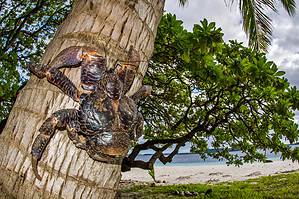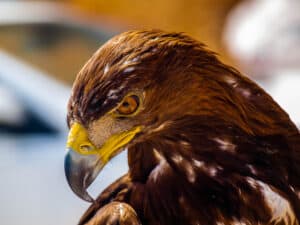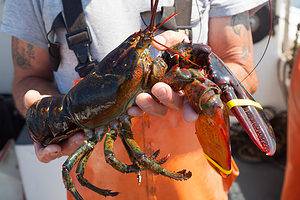As kids grow older, parents gradually yearn to loosen the reins and encourage their offspring to take part in responsibility-teaching activities. Some moms and dads believe caring for a pet meets this coming-of-age undertaking. Therefore, the next important question becomes what pet should be their child’s first. Learn if hermit crabs make good first pets for kids.
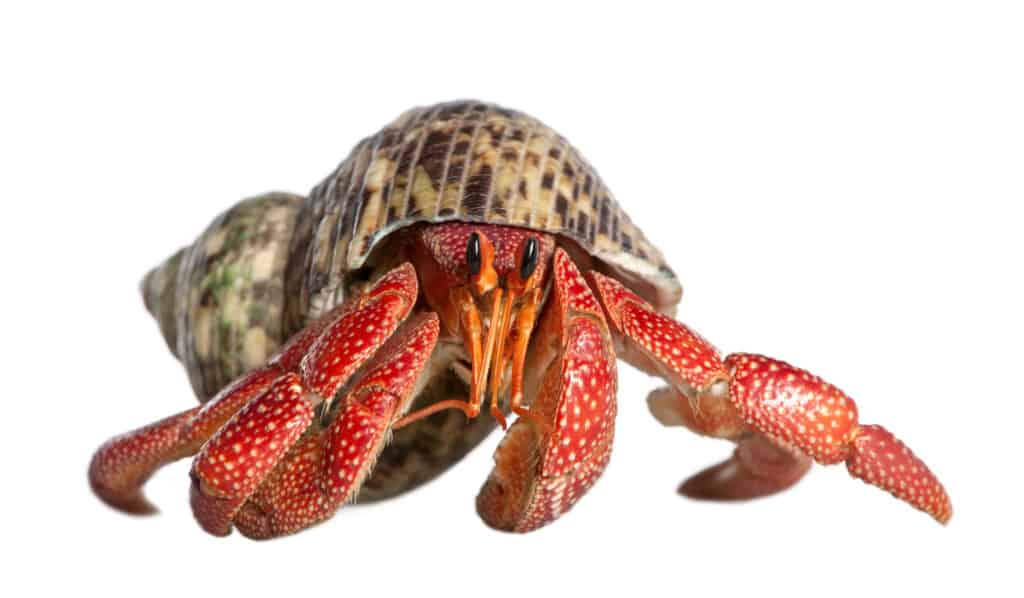
Many parents choose hermit crabs as their child’s first pet because they are small and relatively docile.
©Eric Isselee/Shutterstock.com
Hermit Crab Overview
Hermit crabs, also known scientifically as Coenobita clypeatus, are relatively small crustaceans popularly sold as pets in pet store chains.
Size
Several types of hermit crabs exist. Therefore, the specific size depends on the breed. However, for the most part, those commonly sold as pets are small and can fit in the palm of even a child’s hand.
Natural Habitat
Hermit crabs are native to world regions such as the western Atlantic Ocean, the Caribbean Sea, and portions of the Pacific Ocean. Moreover, those sold as pets are referred to as land hermit crabs, which means they can live on both land, like sandy beaches, and in the sea.
Diet
Typically, hermit crabs consume natural products like fruits and vegetables. However, fish food and crab food preparations found in pet stores also serve as suitable options.
Behavior
Hermit crabs are laid-back and not usually aggressive. As their name indicates, they like to spend extended periods living the hermit lifestyle hiding inside the comfort of their shells. Typically, they emerge most often to eat. Moreover, they are nocturnal meaning they conduct most of their business while their owners are sleeping.
Interesting Fact
Arguably, the hermit crab’s most important feature is its shell. As these creatures age and grow larger, the shell they originally grew into becomes too small to accommodate them and they must find roomier digs.
The need for a new shell is brought forth by a process known as molting. During this activity, a hermit crab’s exoskeleton, which is their body’s outer portion, expands. As molting progresses, the water pressure within the creature’s body builds up to such a marked extent that its existing shell splits apart. Molting may take several months to complete.
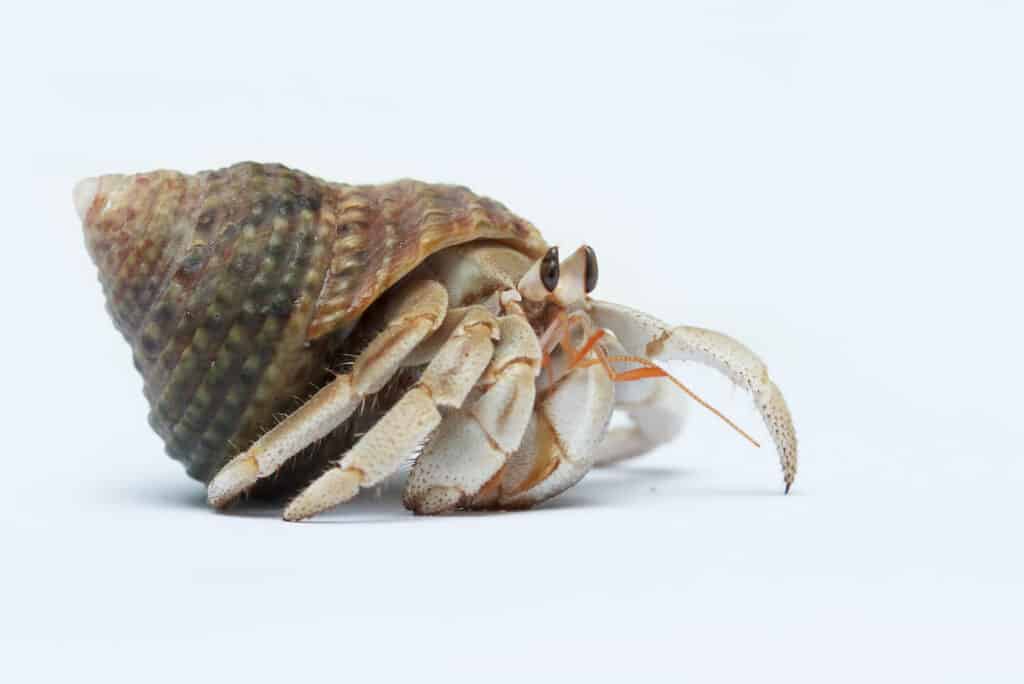
Hermit crabs can make good first pets for older kids, with help in carrying out important care steps from their parents or older siblings.
©Wow Pho/Shutterstock.com
Do Hermit Crabs Make Good First Pets for Kids?
A solid percentage of pet experts maintain that the answer to this question is yes. Hermit crab care does not place the physical demand on a child that a dog would.
That said, proper ownership requires attention to detail regarding several key aspects of a hermit crab’s care, which may prove challenging for very young people. Even older kids will likely require assistance from their parents to correctly complete these critical steps. Important facets of hermit crab ownership include the following.
Setting Up a Tank
Pet care professionals maintain that enclosed glass tanks make the best homes for hermit crabs. Additionally, the animal comes from naturally warm surroundings. This means the tank must be heated and kept between 72 and 80 degrees Fahrenheit using a heating device and monitoring the internal temperature using a thermometer. Hermit crab experts also recommend inserting a light source and leaving it on for at least eight hours per day.
Creating Natural Surroundings
When living in their typical environment, hermit crabs are surrounded by natural materials such as sand, rock, and soil. To ensure they feel as much at home as possible, tanks should be fitted with these items. Parents and children could work together to complete this project by gathering the necessary materials and decorating the tank using their own unique styles.
Finding An Appropriate Replacement Shell
Finding a replacement shell proves crucial to hermit crab care. Furthermore, this item must be significantly larger than the one housing the creature when it is purchased. Again, one must remember that the hermit crab will grow and needs a larger shell to protect its bigger body. Finding the new shell and placing the object inside the tank could prove to be a fun activity for the animal’s young owner.
Feeding
Feeding fish or crab food pellets proves simple and involves simply tossing the product inside the tank. However, hermit crab experts recommend feeding the creatures natural goodies like fruits and vegetables. Kids might enjoy helping their mom or dad chop up fresh produce and placing the fruit or vegetable inside their hermit crab’s tank. That said, it bears repeating that hermit crabs are nocturnal and should therefore be fed at night. In addition, hermit crabs must always have an adequate supply of water.
Cleaning
If its owners ensure it always has fresh water, the hermit crab will use some of the supply to bathe periodically bathe itself.
Molting
During the molting process, hermit crabs also shed skin. Its owners should not discard that material. The creature may eat the skin because it contains important nutrients like calcium.
The photo featured at the top of this post is © Alexander Sviridov/Shutterstock.com
Thank you for reading! Have some feedback for us? Contact the AZ Animals editorial team.




